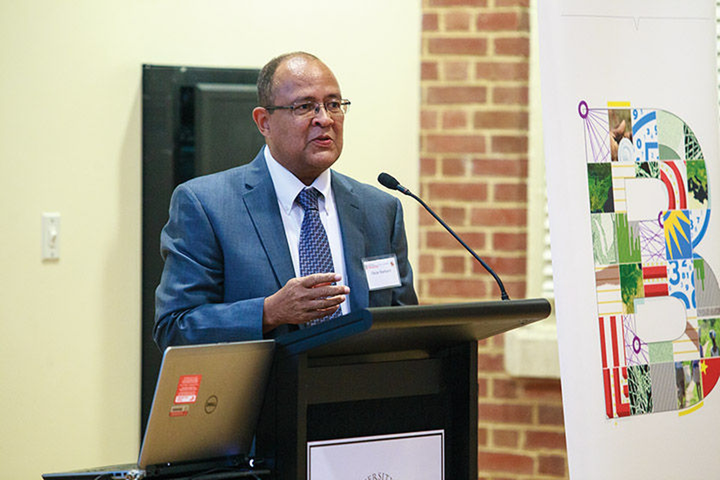By Rebecca Rainey
@thedbk
For The Diamondback
A team of University of Maryland researchers discovered some of the underlying causes of why black men who are treated for violent trauma, such as gunshot wounds, stabbings and beatings are likely to be repeat victims of the same injuries.
Black men who abused substances, used a weapon in the last year and had been previously incarcerated were more likely to experience multiple hospitalizations for violent injury — risk factors that a team of researchers led by Joseph Richardson and Dr. Carnell Cooper are calling “trauma recidivism.”
“What often happens is young men get trapped into particular settings,” said Oscar Barbarin, chair of the African-American studies department. “If you have an accumulation of adverse events and having few opportunities as you approach being an adult it constrains your range of activity and ability to look forward.”
The study, which was conducted through the African-American studies department, was published in the July 2016 edition of the Journal of Surgical Research. It surveyed nearly 200 black males who were at least 18 years old and had been treated at the University of Maryland Medical System Shock Trauma Center in Baltimore between 1998 and 2011.
The study found that 58 percent of the participants were hospitalized for violent injuries at least two times and 97 percent had been previously incarcerated, according to the report.
“We need to address the structural violence behind interpersonal violence,” Richardson said. “If interpersonal violence is preventable, how is it as a society that we have allowed violence to become the leading cause of death among young black men?”
The study also highlights an issue that black men in Prince George’s County are facing, Barbarin said.
“The resources for black men coming into Prince George’s County to accommodate and assimilate back into the community may not be readily available as other counties,” said Barbarin.
Richardson said that he plans to use the research to educate and enhance the hospital-based violence intervention programs at the University of Maryland.
Medical System Shock Trauma Center and a similar program at the Prince George’s Hospital Trauma Center.
Hospital-based violence intervention programs work with patients during their hospital stay, providing access to advocacy programs such as social services, mental health counseling and job training, according to National Network of Hospital-based Violence Intervention Program’s website.
“I think this information can lead to asking deeper questions about the structural violence which targets black and brown communities,” Richardson said.
Jessie Karangu, university alumnus and member of the National Association of Black Journalists, said the findings don’t surprise him at all.
“For many black men out there who are not given the resources necessary to acclimate themselves in a working environment, this is the only way for them to survive no matter how much risk comes with the job,” he said.
Karangu argued, however, that the findings of the study doesn’t necessarily reflect the black men on the campus.
“I believe strongly that my fellow black males who attend [the] University of Maryland are well aware of the situations that could deter them from success and are doing their best to make sure those distractions don’t affect them.”



